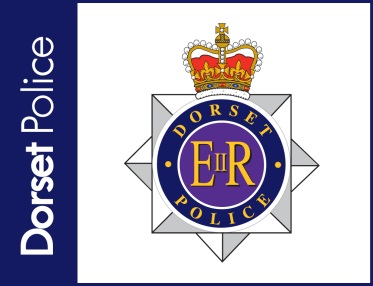ANSWERING THE CALL ………………………………………… NONEMERGENCY CONTACT OFFICER IT’S NOT
ANSWERING HOMEPAGE MAIL FORWARD QUESTIONS TO THE FOLLOWING ADDRESSESANSWERING THE CALL ………………………………………… NONEMERGENCY CONTACT OFFICER IT’S NOT
ASKINGANSWERING DIFFERENT TYPES OF QUESTIONS (A MODIFIED VERSION OF
BEHAVIORAL INTERVIEW QUESTIONS ANSWERING BEHAVIORAL INTERVIEW QUESTIONS 1 DESCRIBE
CHARACTERISTICS OF A GOOD INDICATOR FOCUSED ON ANSWERING
CT31 TEST YOUR TRANSMITTER BY ANSWERING THIS QUESTION FIND
Guidance notes for completing
Answering the call
…………………………………………..
Non-emergency Contact Officer
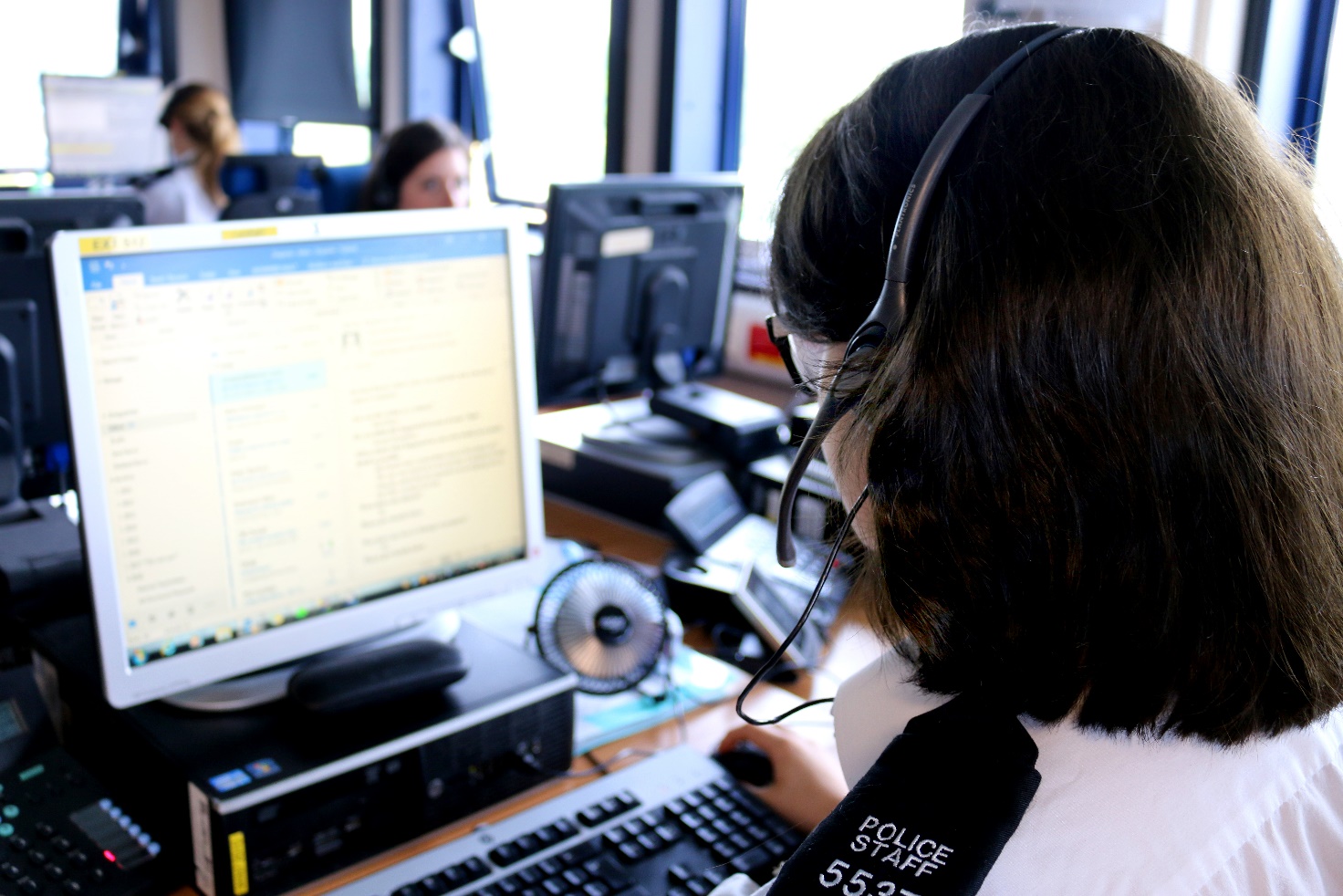
It’s not an everyday job
Be part of one of the most efficient and best performing Forces in the country
Dorset covers 1,024 square miles, has a resident population of 742,000 and attracts 14.3m overnight stays by visitors each year. It’s a busy place but has one of the lowest recorded crime rates in the country and the Force Command Centre is key to keeping it that way. From the Force Command Centre based in our Headquarters at Winfrith, teams of 101 and 999 call takers and radio operators answer calls and emails, and co-ordinate police resources across the whole of Dorset, 24 hours a day, 7 days a week. From the conurbation of Bournemouth and Poole in the east of the county to the rural west, Dorset throws unusual, difficult, yet fascinating situations at our staff every day. Joining us means learning to expect anything.
How does non-emergency call handling fit into the Force Command Centre?
The Force Command Centre is separated into two areas: the Call Handling Centre in Bournemouth, which receives only non-emergency (101) non-emergency calls, and emails and online contact, and the Force Control Room in Winfrith, which handles non-emergency (101) calls emails and online contact as well as emergency (999) call handling and dispatch (radio operators). A team of over 30 members of staff are normally on duty in the Force Command Centre at any one time.
Non-emergency Contact Officers receive calls from people of all backgrounds and nationalities. It is their responsibility to gather the right information, often under difficult circumstances, to enable the right response. Asking the right questions, listening and relaying accurate details at the same time is critical when every second can be precious. It is not always easy. The caller may speak little English or be too distressed to communicate clearly. The manner in which the Non-emergency Contact Officer controls the call and asks the questions will help colleagues who may also be required to assist the caller.
101 calls are dealt with in exactly the same manner whether received in the Bournemouth Call Handling Centre or the Winfrith Force Control Room. Detailed questioning allows the Non-emergency Contact Officer to establish a rapport with the caller and draw out the necessary information to deal with the caller’s query and record all the necessary information.
999 calls are time critical and questioning needs to be very specific and controlled. Caller details are then entered on the computerised Command and Control system, and depending on the grading of the call, the 101 and 999 Contact Officer/Radio Operators in the dispatch function take over.
In dispatch, 101 and 999 Contact Officer/Radio Operators work in teams and are each responsible for their own particular area of Dorset. They pass details of the call to the appropriate police team by Airwave Radio and will remain in touch with the deployed teams for the duration of the incident. 101 and 999 Contact Officer/Radio Operators make decisions on how many and which police officers to send to which incidents and are constantly balancing the demand for police officers against the number of incidents they are managing.
They are assisted by support operators who are also trained 101/999 Contact Officer/Radio Operators and who liaise with other emergency services, keep victims updated, and communicate with police officers at the incident.
Answering non-emergency (101) calls and emails
The Bournemouth Call Handling Centre deals with a quarter of a million calls each year and the Contact Officer will almost always be the first member of Dorset Police staff to whom the caller has spoken. Empathy is very important; the manner in which the call is handled will influence the attitude the caller has to Dorset Police and when and how they choose to contact us in the future.
A 101 call does not normally require an immediate response and will not normally lead to the immediate deployment of police resources. It is crucial to remember that whilst such calls may not be reporting an emergency, they remain important, particularly to the caller. Each caller is treated equally and each situation is taken on its own merits, as there will be occasions when an emergency is reported via 101, rather than 999.
Calls may involve incidents which have already occurred, such as theft, concerns for welfare or simply reporting the unusual. Some calls are relating to issues which are not a police matter. Listening to the caller and use of effective questioning techniques whilst paying attention to detail allows the Contact Officer to determine the correct response and provide an effective solution to the problem. The Bournemouth Call Handling Centre also manages electronic enquiries including a growing number of emails sent to Dorset Police and undertakes the recording and processing of volume crime.
All calls are assessed against the National Call Handling Standards (NCHS) to ensure maintenance of quality of service and consistency of approach. Dorset Police aims to resolve as many queries as possible at the first point of contact and prides itself on providing high quality customer service.
Training and why it’s so important
You can expect sustained learning and assessment during your first year so you should be aware of the high levels of effort and commitment involved. If you have any leave booked during the initial training and mentoring period, you will be required to cancel that leave. If this is not possible, you will join the next available course.
During initial training we will require successful candidates to work full time for the period of training delivery, which will be for approximately 16 to 18 weeks. This is owing to the level of training required in order to provide successful candidates with the skills to start the role. During the training period we are not able to grant any leave.
The first five weeks of your training will focus on systems, policies, procedures and law with some call handling, and will largely be classroom based. You will learn how non-emergency (101) calls fit within the criminal and judicial process and how to manage a call to ensure the needs of both the caller and Dorset Police are met as effectively as possible. You will work approximately 0830hrs – 1600hrs whilst in the classroom.
You will then move to a live call handling environment dedicated to trainees, supported and supervised by mentors and Contact Management trainers. You will work within your contracted pattern and hours, but there may be modifications to the hours you are on duty, particularly for shift workers, to ensure that you have the opportunity to experience as wide a variety of calls as possible and to allow you to practise the skills you have learnt. You will maintain a professional portfolio throughout your training period and will be assessed regularly to ensure you have the support you need to develop your skills effectively.
Having experienced a wide range of calls, dealt with emails and undertaken crime recording and subject to successful completion of your portfolio, you will be deemed competent in the role.
The probationary period for Non-emergency Contact Officers is 6 months. You will continue to be assessed on the quality of your work on a regular basis throughout your probationary period as you develop your skills and experience. You will receive regular training throughout your professional career to ensure that we continue to provide the best possible service to the people of Dorset.
Why is the training so extensive? Because it needs to be. You are the first contact with the public; the vital link in times of crisis or the knowledgeable individual if they report something unusual. You must be able to cope with anything; from an elderly lady who doesn’t want to be in her residential care home, to a member of the public who has returned from holiday to a burglary. The decisions you make in the calls you receive – and the instructions you give – have an immediate impact on the caller. On occasion, they may be life-changing. You are the public face of Dorset Police. This is why training is so important.
For any further queries about
the role please email:
Hours
In Winfrith we offer a rolling full time (37 hours) shift pattern, or two preferred flexible working options at 18.5 hours or 24.67 hours, which spans the hours 0830 to 0030hrs and includes some weekend working. This attracts a 14% shift allowance, and enhancements for weekend working.
In Bournemouth, we offer full time (37 hours) or a preferred flexible working option of 18.5 hours job share for staff working a day Monday-Friday shift contract. This attracts a 12.5% shift allowance:
Week 1 Monday to Friday 0800-1600hrs
Week 2 Monday to Friday 1200-2000hrs
You will normally need to remain full time until you are deemed as competent (which is likely to take around 4 months, and therefore may be before your Probationary period expires).
Staff will be required to work such bank holidays as fall within their pattern for which additional enhancements will be paid.
Pay - Winfrith
Commencing salary will be within Scale C which is £21,604 per annum pro rata, rising by yearly increments to £23,026 per annum pro rata. Salary is inclusive of 14% shift allowance. An enhancement can also be claimed for hours worked at weekends which accumulates to approximately £2,000 per annum pro rata.
Pay – Bournemouth
Commencing salary will be within Scale C which is £21,319 per annum pro rata, rising by yearly increments to £22,723 per annum pro rata. Salary is inclusive of 12.5% shift allowance.
Location
This post is based at Force Headquarters, Winfrith near Wool in Dorset, and at Bournemouth Police Station. The initial training is generally held at your eventual working location, ie, Winfrith or Bournemouth. For operational reasons, we may occasionally need to base the training elsewhere in the Force. On these rare occasions, you will be notified as soon as possible.
Ideally, you will need to remain full time until such time as you achieve competence in each of the three skill areas.
Staff will be required to work such bank holidays as they fall within their pattern for which additional enhancements will be paid.
Tenure
This post is subject to a two year tenure period during which staff are precluded from applying for other roles or secondments within the Force.
Holiday entitlements
Dorset Police annual leave entitlements for a member of staff working 37 hours is 23 days (170.20 hours) or pro rata if part time. Leave is currently recorded and booked in hours and minutes (excluding lunch breaks) for all staff.
An additional five days leave for staff working 37 hours (or pro rata if part time) is granted following the fifth year anniversary of appointment (pro rata for the year of the anniversary) therefore the leave entitlement will increase to 28 days (207.20 hours) in the following leave year.
Additional information
As an operational policing environment, training plans and other activity will sometimes be subject to amendment for operational reasons.
Other benefits
Dorset Police endeavours to offer proactive support to maximise a healthy work/life balance. Staff are therefore offered a wide range of policies to assist in creating a healthy work/life balance including:
Maternity, Paternity and Adoption Leave
Flexible Working Policy: e.g. opportunity for Job sharing and part time working to be considered
Shift working
Extended Leave Break Policy
Staff also have access to a Contributory Pension Scheme.
Fitness
Fitness and gym facilities are available at various locations across the Force including Force Headquarters. Trained staff are available to offer advice and assistance to police staff regarding fitness programmes and use of specialist equipment.
Support Networks
The Force has a number of support networks for its staff, including Dorset Action for
Women Network (DAWN), Parent Network Support Group, Disability Support Network, Neurodiversity Support Network, Lesbian and Gay Liaison Officers (LAGLO), LGBT+ Support Network, Force Chaplaincy and the Minority Ethnic Police Association (MEPA).
Example Shift Pattern – Full Time 37 Hours (Winfrith)
|
Week |
Monday |
Tuesday |
Wednesday |
Thursday |
Friday |
Saturday |
Sunday |
|
1 |
REST DAY |
0830-1730 |
0830-1730 |
1530-0030 |
1430-0030 |
1530-0030 |
1530-0030 |
|
2 |
REST DAY |
REST DAY |
REST DAY |
Training Day |
0830-1830 |
0830-1830 |
0830-1730 |
|
3 |
0830-1730 |
1530-0030 |
1530-0030 |
REST DAY |
REST DAY |
REST DAY |
REST DAY |
|
4 |
0830-1730 |
0830-1730 |
1530-0030 |
1530-0030 |
1530-0030 |
1530-0030 |
REST DAY |
|
5 |
REST DAY |
REST DAY |
REST DAY |
0830-1730 |
0830-1830 |
0830-1830 |
0830-1730 |
|
6 |
1530-0030 |
1530-0030 |
REST DAY |
REST DAY |
REST DAY |
REST DAY |
0830-1730 |
|
7 |
0830-1730 |
1530-0030 |
1530-0030 |
1530-0030 |
1530-0030 |
REST DAY |
REST DAY |
|
8 |
REST DAY |
REST DAY |
0830-1730 |
0830-1730 |
0830-1830 |
0830-1830 |
1530-0030 |
|
9 |
1530-0030 |
REST DAY |
REST DAY |
REST DAY |
REST DAY |
0830-1830 |
0830-1730 |
|
10 |
1530-0030 |
1530-0030 |
1530-0030 |
1530-0030 |
REST DAY |
REST DAY |
REST DAY |
|
11 |
REST DAY |
0830-1730 |
0830-1730 |
0830-1830 |
0830-1830 |
1430-0030 |
1530-0030 |
|
12 |
REST DAY |
REST DAY |
REST DAY |
Training Day |
0830-1830 |
0830-1830 |
1530-0030 |
|
13 |
1530-0030 |
1530-0030 |
1530-0030 |
REST DAY |
REST DAY |
REST DAY |
REST DAY |
|
14 |
0830-1730 |
0830-1730 |
0830-1730 |
0830-1730 |
1530-0030 |
1530-0030 |
REST DAY |
|
15 |
REST DAY |
REST DAY |
REST DAY |
0830-1730 |
0830-1830 |
1430-0030 |
1530-0030 |
|
16 |
1530-0030 |
1530-0030 |
REST DAY |
REST DAY |
REST DAY |
REST DAY |
0830-1730 |
|
17 |
0830-1730 |
0830-1730 |
0830-1730 |
1530-0030 |
1530-0030 |
REST DAY |
REST DAY |
|
18 |
REST DAY |
REST DAY |
0830-1730 |
0830-1730 |
1430-0030 |
1430-0030 |
1530-0030 |
|
19 |
1530-0030 |
REST DAY |
REST DAY |
REST DAY |
REST DAY |
0830-1830 |
0830-1730 |
|
20 |
0830-1730 |
0830-1730 |
1530-0030 |
1530-0030 |
REST DAY |
REST DAY |
REST DAY |
RD – Rest Day
FD – Free Day
TRNG – Training
Example Shift Pattern – Part time 24.67 Hours (Winfrith)
|
Week |
Monday |
Tuesday |
Wednesday |
Thursday |
Friday |
Saturday |
Sunday |
|
1 |
Rest Day |
0830-1730 |
0830-1730 |
1030-1930 |
1030-2030 |
Free Day |
Free Day |
|
2 |
Rest Day |
Rest Day |
Rest Day |
Free Day |
Free Day |
Free Day |
1030-1930 |
|
3 |
1030-1930 |
1530-0030 |
1530-0030 |
Rest Day |
Rest Day |
Rest Day |
Rest Day |
|
4 |
0830-1730 |
0830-1730 |
Free Day |
Free Day |
1330-2230 |
1330-2230 |
Rest Day |
|
5 |
Rest Day |
Rest Day |
Rest Day |
0830-1730 |
0830-1830 |
1030-1930 |
1030-1930 |
|
6 |
Free Day |
Free Day |
Rest Day |
Rest Day |
Rest Day |
Rest Day |
Free Day |
|
7 |
Free Day |
1030-1930 |
1030-1930 |
1530-0030 |
1530-0030 |
Rest Day |
Rest Day |
|
8 |
Rest Day |
Rest Day |
0830-1730 |
0830-1730 |
Free Day |
Free Day |
1330-2230 |
|
9 |
1330-2230 |
Rest Day |
Rest Day |
Rest Day |
Rest Day |
0830-1830 |
0830-1730 |
|
10 |
1030-1930 |
1030-1930 |
Free Day |
Free Day |
Rest Day |
Rest Day |
Rest Day |
|
11 |
Rest Day |
Free Day |
Free Day |
1030-1930 |
1030-2030 |
1530-0030 |
1530-0030 |
|
12 |
Rest Day |
Rest Day |
Rest Day |
0900-1700 |
0830-1830 |
0830-1830 |
Free Day |
|
13 |
Free Day |
1330-2230 |
1330-2230 |
Rest Day |
Rest Day |
Rest Day |
Rest Day |
|
14 |
0830-1730 |
0830-1730 |
1030-1930 |
1030-1930 |
Free Day |
Free Day |
Rest Day |
|
15 |
Rest Day |
Rest Day |
Rest Day |
Free Day |
Free Day |
1030-2030 |
1030-1930 |
(continued overleaf)
(continued from previous page)
|
16 |
1530-0030 |
1530-0030 |
Rest Day |
Rest Day |
Rest Day |
Rest Day |
0830-1730 |
|
17 |
0830-1730 |
Free Day |
Free Day |
1330-2230 |
1330-2230 |
Rest Day |
Rest Day |
|
18 |
Rest Day |
Rest Day |
0830-1730 |
0830-1730 |
1030-2030 |
1030-2030 |
Free Day |
|
19 |
Free Day |
Rest Day |
Rest Day |
Rest Day |
Rest Day |
Free Day |
Free Day |
|
20 |
1030-1930 |
1030-1930 |
1530-0030 |
1530-0030 |
Rest Day |
Rest Day |
Rest Day |
|
21 |
Rest Day |
0830-1730 |
0830-1730 |
1030-1930 |
Free Day |
1330-2230 |
1330-2230 |
|
22 |
Rest Day |
Rest Day |
Rest Day |
0900-1700 |
0830-1830 |
0830-1830 |
1030-1930 |
|
23 |
1030-1930 |
Free Day |
Free Day |
Rest Day |
Rest Day |
Rest Day |
Rest Day |
|
24 |
Free Day |
Free Day |
1030-1930 |
1030-1930 |
1530-0030 |
1530-0030 |
Free Day |
|
25 |
Free Day |
Rest Day |
Rest Day |
0830-1730 |
0830-1830 |
Free Day |
Free Day |
|
26 |
1330-2230 |
1330-2230 |
Rest Day |
Rest Day |
Rest Day |
Rest Day |
0830-1730 |
|
27 |
0830-1730 |
1030-1930 |
1030-1930 |
Free Day |
Free Day |
Rest Day |
Rest Day |
|
28 |
Rest Day |
Rest Day |
Free Day |
Free Day |
1030-2030 |
1030-2030 |
1530-0030 |
|
29 |
1530-0030 |
Rest Day |
Rest Day |
Rest Day |
Rest Day |
0830-1830 |
0830-1730 |
|
30 |
Free Day |
Free Day |
1330-2230 |
1330-2230 |
Rest Day |
Rest Day |
Rest Day |
Example Shift Pattern – Part time 18.5 Hours (Winfrith)
|
Week |
Monday |
Tuesday |
Wednesday |
Thursday |
Friday |
Saturday |
Sunday |
|
1 |
REST DAY |
0830-1730 |
0830-1730 |
1530-0030 |
FREE DAY |
FREE DAY |
FREE DAY |
|
2 |
REST DAY |
REST DAY |
REST DAY |
FREE DAY |
FREE DAY |
FREE DAY |
FREE DAY |
|
3 |
0830-1730 |
1530-0030 |
1530-0030 |
REST DAY |
REST DAY |
REST DAY |
REST DAY |
|
4 |
0830-1730 |
0830-1730 |
1530-0030 |
FREE DAY |
FREE DAY |
FREE DAY |
REST DAY |
|
5 |
REST DAY |
REST DAY |
REST DAY |
FREE DAY |
FREE DAY |
FREE DAY |
0830-1730 |
|
6 |
1530-0030 |
1530-0030 |
REST DAY |
REST DAY |
REST DAY |
REST DAY |
0830-1730 |
|
7 |
0830-1730 |
1530-0030 |
FREE DAY |
FREE DAY |
FREE DAY |
REST DAY |
REST DAY |
|
8 |
REST DAY |
REST DAY |
FREE DAY |
FREE DAY |
FREE DAY |
0830-1830 |
1530-0030 |
|
9 |
1530-0030 |
REST DAY |
REST DAY |
REST DAY |
REST DAY |
0830-1830 |
0830-1730 |
|
10 |
0830-1730 |
FREE DAY |
FREE DAY |
FREE DAY |
REST DAY |
REST DAY |
REST DAY |
|
11 |
REST DAY |
FREE DAY |
FREE DAY |
FREE DAY |
0830-1830 |
1430-0030 |
1530-0030 |
|
12 |
REST DAY |
REST DAY |
REST DAY |
Training Day |
0830-1830 |
0830-1830 |
1530-0030 |
|
13 |
FREE DAY |
FREE DAY |
FREE DAY |
REST DAY |
REST DAY |
REST DAY |
REST DAY |
|
14 |
FREE DAY |
FREE DAY |
FREE DAY |
0830-1730 |
1530-0030 |
1530-0030 |
REST DAY |
|
15 |
REST DAY |
REST DAY |
REST DAY |
0830-1730 |
0830-1830 |
1430-0030 |
FREE DAY |
|
16 |
FREE DAY |
FREE DAY |
REST DAY |
REST DAY |
REST DAY |
REST DAY |
FREE DAY |
|
17 |
FREE DAY |
FREE DAY |
0830-1730 |
1530-0030 |
1530-0030 |
REST DAY |
REST DAY |
|
18 |
REST DAY |
REST DAY |
0830-1730 |
0830-1730 |
1430-0030 |
FREE DAY |
FREE DAY |
|
19 |
FREE DAY |
REST DAY |
REST DAY |
REST DAY |
REST DAY |
FREE DAY |
FREE DAY |
|
20 |
FREE DAY |
0830-1730 |
1530-0030 |
1530-0030 |
REST DAY |
REST DAY |
REST DAY |
Example Shift Pattern – 37 hours (Bournemouth)
Bournemouth Squad A
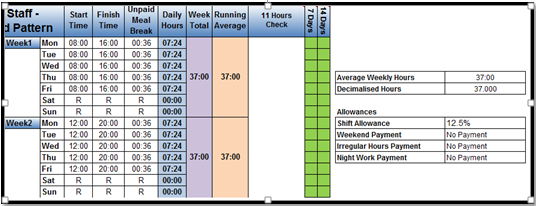
|
|
|
|
Bournemouth Squad B |
|
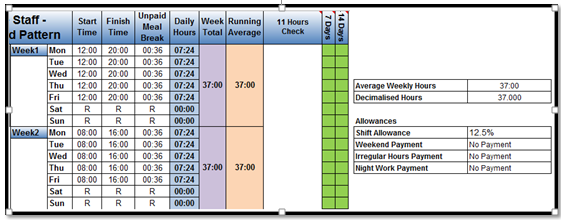
Recruitment Schedule and Application Process
Provided below is a simple schedule reflecting the key stages of the Non-Emergency Contact Officer recruitment process.
|
Shortlisting and competency-based marking |
|
Candidates advised of result by email |
|
Invited to Assessment Centre |
|
Assessment Centre attendance |
|
Candidates advised of results of Assessment Centre by email |
|
Final stages of selection process for successful applicants:
Medical suitability Audiometry test Security and reference checks
|
|
Appointment to start next intake |
|
Application
|
|
The following points should always be taken into consideration as they are particularly important:
We do not accept Curriculum Vitae (CVs) and we will not consider any received.
Each vacancy has specific selection criteria, which has been agreed to reflect the exact types and ranges of skills and aptitudes required to perform the role. You will need to think very carefully about how you complete the ‘Information in Support of Your Application’ section. You must identify each criterion separately on the form (from the Job Description) evidencing how you meet each one separately.
Applications should ideally be completed by type. Font size should be in Arial and no less than font 10. Evidence must be restricted no more than three sides of A4. Any evidence which exceeds this will be removed.
The completed application forms must be returned BY POST or EMAIL, by no later than 12 noon on the closing date and to the address below:
Alliance Resourcing, People Department Dorset Police Headquarters, Winfrith, Dorchester, Dorset DT2 8DZ Email: [email protected]
We value your interest in opportunities with Dorset Police. If you are unsuccessful on this occasion, please do not let this put you off from applying again for other vacancies as and when they are advertised. |
|
Assessment Centre
|
|
Typing test Scenario based group exercise Diversion test and Short Term Memory Test Telephone test Structured interview
You will be sent more details of what to expect at the assessment centre with your invitation.
|
|
When will I be informed if I have been successful at the Assessment Centre?
|
|
You will be informed of your assessment result by email approximately a week after the event.
If you are not selected on this occasion but have the potential to be suitable for future Non-Emergency (101) Contact Officer vacancies, there will be the opportunity to be retained on a waiting list. However, it should be noted that such opportunities are not guaranteed.
|
|
What are the remaining stages of the recruitment process if I am offered a vacancy?
|
|
Medical suitability and audiometry test
|
|
Once we have offered you a conditional offer of appointment, you will be sent a Health Declaration, Attendance Declaration and invited to attend an audiometry test with the Occupational Health Department.
Please
note medical clearance, which includes the audiometry test, can on
occasions take a reasonable period of time, as sometimes our Force
Medical Officer may need to seek further guidance from your GP or
specialist. This is to ensure that you are fit to perform the role
and that your health and safety is not put at risk. To ensure
validity these must be carried out close to any conditional
appointment date. Should any complications occur, it may be
necessary for the force to defer your appointment until this can
be satisfactorily completed. A member of the Recruitment Team
will liaise with you if this situation occurs. |
|
References and security checks
|
|
Security and reference checks are required and will be taken forward by the Recruitment Team. Please note that in some cases security checks can also take a long time to be completed and complications can arise. In such circumstances the force will need to defer any appointment date until such a time as these checks are satisfactorily completed. Should this situation arise we will keep you fully informed.
|
|
Appointment stage
|
|
If all of the above mentioned pre-requisites are satisfactorily completed, the force will issue you with a formal offer of employment for your new role as a Non-Emergency (101) Contact Officer.
|
Equal Opportunities
Dorset Police is committed to equality and diversity within its workforce and is determined to ensure that no job applicant, employee or volunteer receives less favourable treatment on the grounds of: gender, race, sexual orientation, marital/cohabitation status, nationality, ethnic or national origins, age, disability status, religious beliefs or trade union membership/non-membership.
Should you have any questions or queries regarding the recruitment process role of the Non-Emergency (101) Contact Officer please do not hesitate to contact the Recruitment Team on: [email protected]
Answering
the call – Non-emergency Contact Officer Page
JEFFERSON RECRUITERS REPORT™ ANSWERING THE “TELL ME ABOUT YOURSELF”
RECRUITMENT SCRIPT WHEN REACHING AN ANSWERING MACHINE OR VOICE
Tags: answering the, [email protected] answering, nonemergency, officer, answering, …………………………………………, contact
- ENERGETSKA SANACIJA JAVNEGA ZAVODA OSNOVNA ŠOLA ZREČE »OPERACIJO DELNO
- USEFUL WEBSITES PUBLICATIONS FOR TEACHING PUPILS WITH ENGLISH AS
- AMPAIESTNTGMAILCOM SOLICITO SER INSCRITO EN LA ASOCIACIÓN DE
- 1100 PÁGINA 3 DE 3 ASAMBLEAS CONCEPTO NO 09963
- SA WG2 MEETING 86E TD LIST 01092011 1540
- WÓJT GMINY WIŻAJNY UL RYNEK 1 16
- ZAŁĄCZNIK NR 3 DO ZAPROSZENIA DO ZŁOŻENIA WYCENY (BADANIE
- BLEFAROPLASTIA DEL PÁRPADO SUPERIOR PEDRO FERNÁNDEZ DE LA FUENTE
- BETREUUNGSVERTRAG V122019 ZWISCHEN ELTERN ALS INHABER DER ELTERLICHEN
- CÓDIGOS ESCRITURA DE IDIOMA JAPONÉS DESCRIPCIÓN EL
- FOR IMMEDIATE RELEASE BRIDGESTONE DEBUTS NEW ECOPIA TIRES DELTAWING
- BIJZONDERE LEERSTOEL CARDIOLOGIE IN HET BIJZONDER DE TOEPASSING VAN
- CONSULTATION ON AMENDMENTS TO THE FINANCIAL SERVICES ACT 2008
- ACTIVITIES FOR LEARNERCENTERED TEACHING EFFECTIVE TEACHING AND LEARNING DEPARTMENT
- PROF WILLIAM MÉNDEZ M VALORACIÓN DE LOS BONOS DEFINICIÓN
- AL DIRIGENTE SCOLASTICO IPSIA “A PACINOTTI” DI FOGGIA OGGETTO
- TABLA DE MONEDAS CÓDIGO MONEDA SIGLA 01 DÓLAR AMERICANO
- TERRITORY AND MUNICIPAL SERVICES GUIDELINES FOR THE MANAGEMENT OF
- BRAINSTORMING BIBLIOGRAPHICAL REFERENCES OSBORN AF “THE ART OF CREATIVITY”
- PART B ACADEMIC PERFRMANCE INDICATORS (PLEASE SEE DETAILED INSTRUCTIONS
- JILL ANNE CHOUINARD SCHOOL OF PUBLIC ADMINISTRATION UNIVERSITY OF
- 11 REGLAMENTO DE LA SECRETARIA GENERAL DE
- UMOWA O OBJĘCIU ŚWIADCZENIAMI Z ZAKRESU MEDYCYNY PRACY POMIĘDZY
- PROCEDURE 524 INSURANCE INDEMNITY RESEARCH AGREEMENTS AND THE VMIA
- “LA INFORMACIÓN QUE CONSTA EN ESTE FORMULARIO SERÁ DE
- TEXTOS PARA COMENTAR TEMA 1 LA FILOSOFÍA Y EL
- CRCCSR1177 PAGE 11 NATIONS UNIES CRC CONVENTION
- APSTIPRINĀTS VIESĪTES NOVADA PAŠVALDĪBAS IEPIRKUMU KOMISIJAS 2017GADA 20 SEPTEMBRA
- PENGAJIAN KITAB IMAM SYAFII DI PESANTREN HUSNAYAIN SENIN 11
- BESCHEINIGUNG ÜBER AUSGEÜBTE TÄTIGKEITEN NACH DEN BESTIMMUNGEN DER RICHTLINIEN
PATVIRTINTA VIEVIO MENO MOKYKLOS DIREKTORIAUS 2017 M KOVO 31
BENDRASIS BALSAVIMO BIULETENIS UŽPILDYMO DATA 2020 BENDROJO BALSAVIMO BIULETENIO
TABELA STATUSA INICIJATIVA I SUGESTIJA PRIVREDNOG SAVJETA OPĆINE ZAVIDOVIĆI
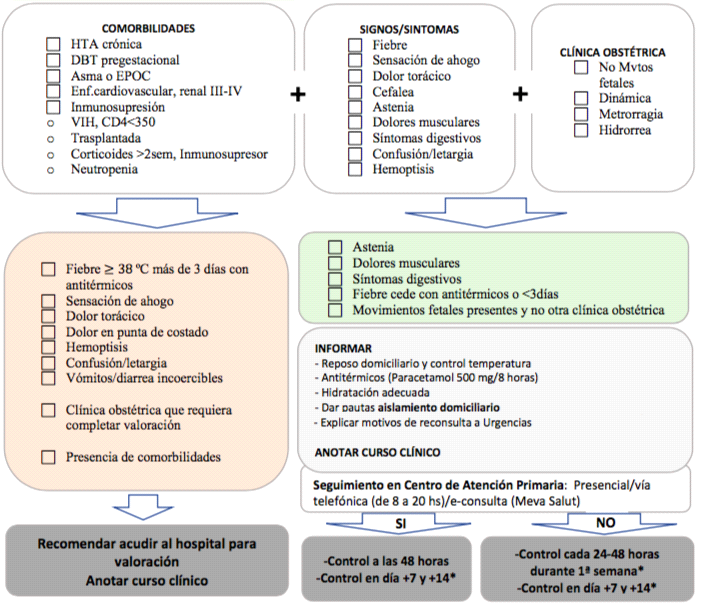 ANEXO A RECOMENDACIONES DE AISLAMIENTO DOMICILIARIO AISLAMIENTO EN
ANEXO A RECOMENDACIONES DE AISLAMIENTO DOMICILIARIO AISLAMIENTO ENNY OECD RAPPORT UTDANNING OG INNVANDRERE UTFORDRINGER OG ANBEFALINGER
 CIRCULAR Nº 11 ESTIMADAS FAMILIAS NOS DIRIGIMOS A USTEDES
CIRCULAR Nº 11 ESTIMADAS FAMILIAS NOS DIRIGIMOS A USTEDES AVISO DE ENVÍO – FORMULARIO 100 2015 LAS
AVISO DE ENVÍO – FORMULARIO 100 2015 LAS 9 CISME CNOM CONTRAT TYPE POUR UN MÉDECIN
9 CISME CNOM CONTRAT TYPE POUR UN MÉDECIN LEY DE COORDINACIÓN FISCAL PARA EL ESTADO DE
LEY DE COORDINACIÓN FISCAL PARA EL ESTADO DESOLICITUD VISADO DE ENTRADA A CUBA DATOS GENERALES
AURELIJA GRITĖNIENĖ LEKSIKOGRAFIJOS TURTAI LIETUVIŲ KALBOS INSTITUTE LIETUVIŲ KALBOS
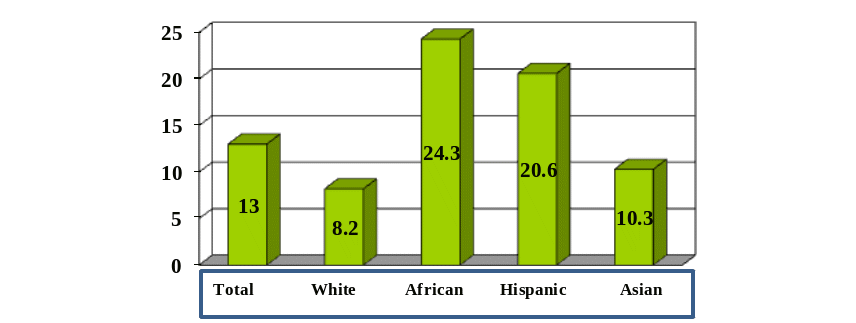 COLLECTION OF DISAGGREGATED DATA AS A TOOL IN FIGHTING
COLLECTION OF DISAGGREGATED DATA AS A TOOL IN FIGHTINGJOBSTVOGTESSER NILS 150105 SCHWARZ OLIVER GRUPPE 1 VERSUCH
ORGANISATION TRAVEL STRATEGY 1 INTRODUCTION THIS DOCUMENT HAS BEEN
 ACTA Nº 3320 EN LA CIUDAD DE MONTEVIDEO EL
ACTA Nº 3320 EN LA CIUDAD DE MONTEVIDEO EL ZAPRASZAMY WSZYSTKICH DO WZIĘCIA UDZIAŁU W II KONFERENCJI NAUKOWEJ
ZAPRASZAMY WSZYSTKICH DO WZIĘCIA UDZIAŁU W II KONFERENCJI NAUKOWEJZAHTEV ZA DOPUNU DNEVNOG REDA SKUPŠTINE SAVEZA 1 DNEVNIM
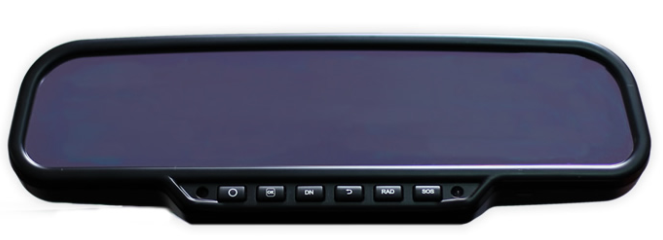 REARMIRROR GPS TRACKER+CAR DVR USER MANUAL PREFACE
REARMIRROR GPS TRACKER+CAR DVR USER MANUAL PREFACE GRADE 8 MODULE 3A UNIT 2 LESSON 11 ANALYZING
GRADE 8 MODULE 3A UNIT 2 LESSON 11 ANALYZING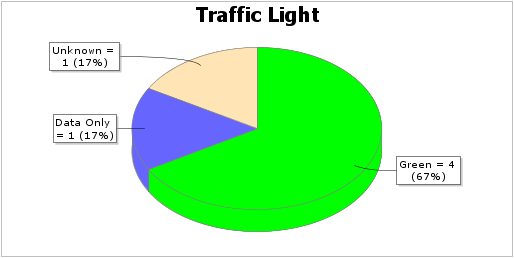 CABINET THURSDAY 27 NOVEMBER 2014 REPORT OF THE LEADER
CABINET THURSDAY 27 NOVEMBER 2014 REPORT OF THE LEADER
